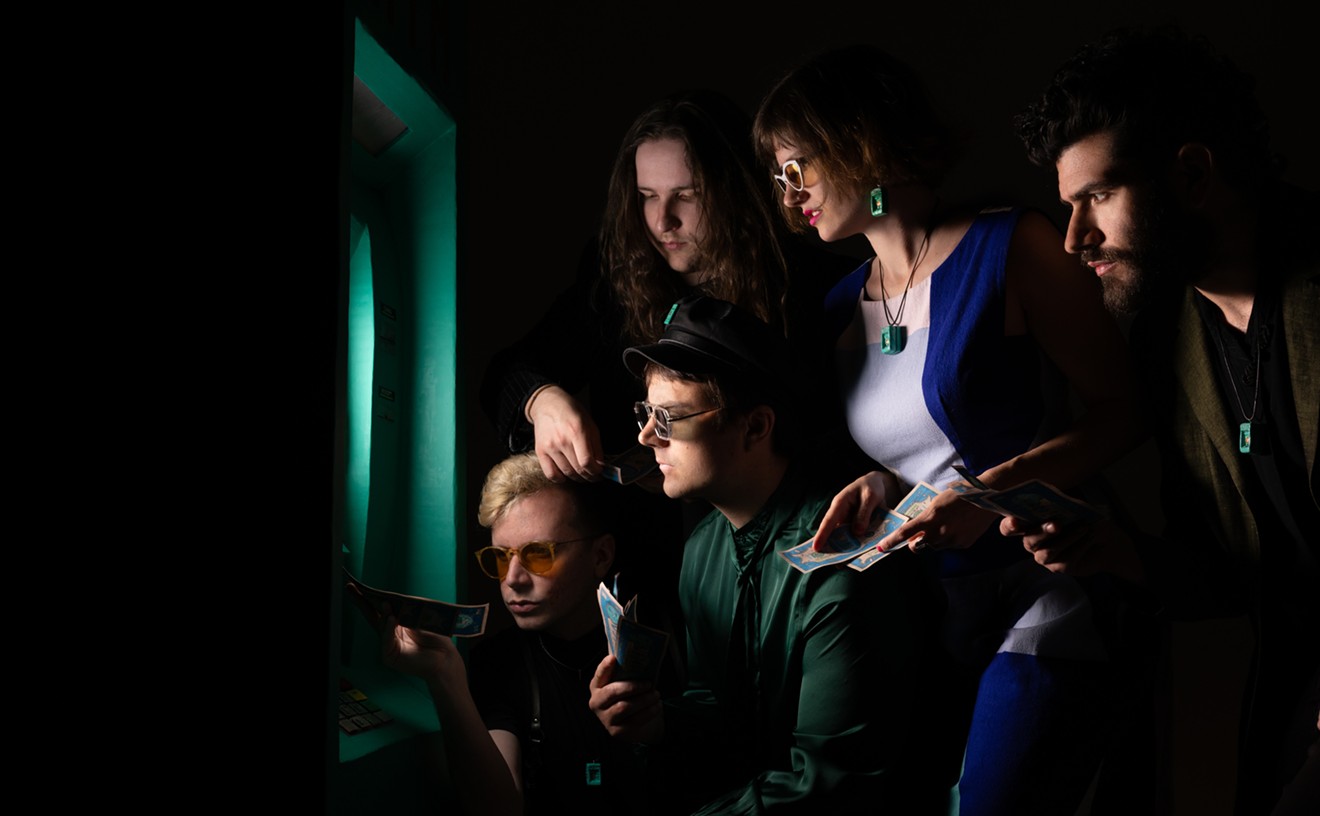The issue at stake is Florida's medical marijuana laws, or rather lack thereof, and an effort to push the state legislature to pass such a law, which would affirm a patient's right to smoke the plant for medicinal purposes. Numerous studies have proved that it has several therapeutic benefits: easing muscle spasms in people afflicted with multiple sclerosis; reducing pain in those suffering from arthritis and glaucoma; and lessening nausea and increasing appetite in AIDS victims and cancer patients undergoing chemotherapy.
There are currently ten states with laws on the books legalizing medical marijuana, including Arizona, Alaska, and California. But the U.S. Drug Enforcement Agency is still mounting legal challenges by claiming that the laws violate federal statutes. Over the past several years the agency has forcibly closed numerous medical marijuana growing facilities. In January 2003, author and advocate Ed Rosenthal was sentenced to time served and three years' probation for running the Harm Reduction Center in San Francisco; dozens of similar cases are working their way through California's courts.
"Since California passed it, I don't know how many other states are really pushing it as hard as Florida is right now," says event organizer Flash of Ploppy Palace Productions. "It's very important [in regards to] healthcare issues, social services, and the fact that [federal agents are] arresting people and raiding places in California [despite the state laws]. It's not just, like, 'Hey, let's get high.'"
Also on hand for the day's events will be speakers for the Florida chapter of the National Organization for the Reform of Marijuana Laws (NORML), the Florida chapter of the Cannabis Action Network (CAN), and two of the seven people currently allowed by the U.S. government to use marijuana. These users are part of a federal program that prescribed joints to extreme medical cases before it stopped accepting new participants in 1992. One of them, Elvy Musikka, is a former Hollywood resident and glaucoma patient. The other, Irvin Rosenfeld, suffers from a rare disease that causes spiky, bony tumors all over his body. If he stresses his muscles, the tumors will tear them, causing hemorrhaging and potentially fatal internal bleeding. So the stockbroker smokes ten joints a day to relax his muscles and live to tell about his experience. The government sends both of them tins of rolled joints for free, since, in its twisted legal logic, their buying the joints would be illegal.
To push their "Legalize It!" agenda, the concert's organizers have put together what has grown into one of the largest local music showcases of the year. "Many of the performers are singing about the issues in particular for this show," says Flash. "And because the music is so diverse, we're able to reach a lot of different people." Unlike other local festivals, this one includes acts from a number of different genres: from rockers Clambake, folkie Willy Coleman, and soul man Big Brooklyn Red to dread rockers Earth Citizens, the Latin-tinged Baboons, and jazz pan master Othello Molineaux.
"Entertainers have benefited from marijuana usage," says Earth Citizens' Jamaican-born Brin Abel in his distinctive patois; he has performed at the festival since its inception. "Definitely, we would probably be one of the most willing of the representatives. Because everybody from every walk of life you could find utilizes marijuana. But I think the musician tends to want to admit it, and take some kind of responsibility for getting these changes to come about."
Indeed, music and marijuana go together like weed and a Philly blunt; the association goes back at least 100 years to the start of the Jazz Age. Just look at a few titles from the past century. There's Hank Williams III yodeling about "Whiskey, Weed, and Women"; Dr. Dre's rap classic The Chronic; Bob Dylan's "Rainy Day Women #12 & 35," with its refrain, "Everybody must get stoned"; world music master Manu Chao's "Marijuana Boogie"; Cab Calloway's early jazz standard "Reefer Man"; and Peter Tosh's paean to the herb, "Legalize It." And God only knows how much bands like the Grateful Dead, Phish, and Pink Floyd owe for their success to the power of pot. "I think the decriminalization of the drug is something a lot of artists are interested in," says Leon Banossian from altrocker outfit Pale Blue Dot, who is also scheduled to play the benefit.
Flash says there is no shortage of bands wanting to be part of the benefit, and he's still getting calls from groups offering to play. While many of these musicians may eagerly line up behind the cause of easing pot-smoking laws, those who have participated in past benefits often come away as educated activists on the more important issue of medical marijuana.
"I became more educated as I became involved," says Abel. What he discovered was that the government has nothing to gain by its legalization, and major drug companies like Unimed -- manufacturer of Marinol, a synthetic marijuana -- have everything to lose if they are forced to compete against a natural herb that could be sold as a health store remedy.
"As musicians and artists, it's kind of our job to point out things that aren't good and bring the awareness to them and talk about those issues," says Banossian. "In its purest form and its best form, music itself has been responsible for getting people to think, and to change the way they think."










